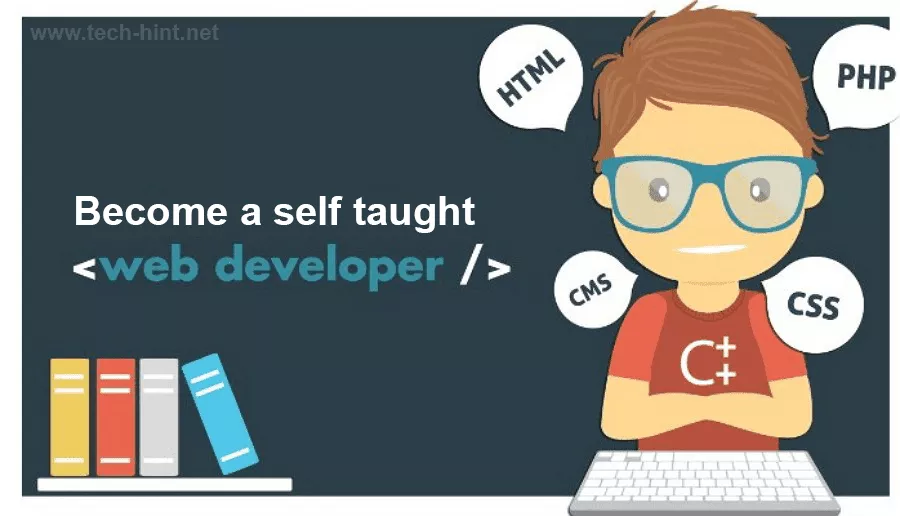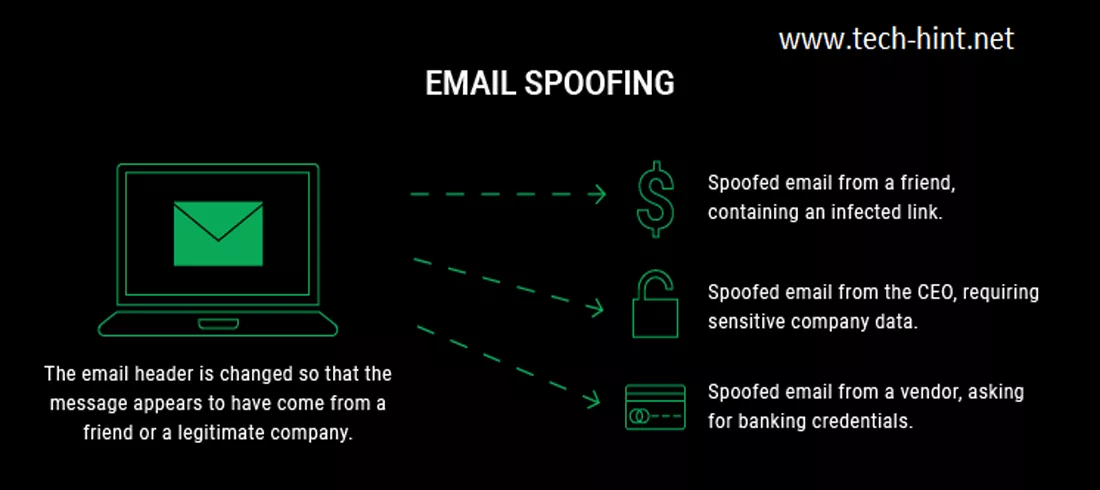How To Become a Self-Taught Web Developer Step by Step Guides
Author: Blessing I. Paul
Last Update On: 18-Jul-2023 11:29:49am
Category: Technology
Topic: Tutorials, Web Development

I can provide some general information and guidance on how to become a self-taught web developer.
Learn the basics of HTML, CSS, and JavaScript: These are the three fundamental technologies that make up the front-end of a website. You can find plenty of resources online to learn about these technologies, including tutorials, videos, and interactive coding exercises.
Practice building simple projects: Once you have a basic understanding of HTML, CSS, and JavaScript, try building simple projects like a personal website or a simple web page that displays information from an API.
Learn a front-end framework or library: Frameworks and libraries like React, Angular, or Vue.js make it easier to build complex and dynamic user interfaces.
Learn a back-end technology: A back-end technology like Node.js or Ruby on Rails is needed to add server-side functionality to your web applications.
Practice building more complex projects: As you become more comfortable with the technologies you've learned so far, try building more complex projects like a web application that allows users to create accounts and save data.
Learn about web development best practices: Learn about things like accessibility, performance optimization, and security.
Learn about web development tools: There are many different tools and technologies that are commonly used in web development, such as Git, GitHub, and webpack.
Participate in the web development community: Join online forums, attend meetups, and participate in hackathons to connect with other web developers and learn from their experiences.
Continuously learn and improve: Web development is a constantly evolving field, new technologies, frameworks and best practices will continue to appear. Keep learning and continuously improve your skills.
Get hands-on experience: While learning and practicing, it is important to try to land on some freelance projects or internships which will give your hands-on experience, and it will help you in real-world scenarios.
This is a general overview of the steps you can take to become a self-taught web developer. Each step has many resources available for learning and improving your skills, and it is important to find the resources that work best for you. Remember that becoming a self-taught web developer will take time and effort, but with perseverance, you can achieve your goal.
What Are Key Programming Languages to Learn As a Web Developer In 2023?
As a web developer, it's important to have a solid understanding of the following programming languages:
JavaScript: This is the most important language for web development, as it is the primary language used to create interactive, dynamic user interfaces on the web. JavaScript is also commonly used on the back end of web applications through technologies like Node.js.
HTML and CSS: These two languages are used to create the structure and layout of web pages. HTML provides the basic structure of a web page and CSS is used to apply styles and control the layout and design of the page.
Python: Many developers find python easy to learn and it's very versatile, it is mostly used as a back-end language. It has a vast number of libraries and frameworks available to it and also is being used in data science and artificial intelligence.
TypeScript: It is a superset of JavaScript and provides a better development experience by adding optional type checking and other language features like classes, interfaces and modules. Typescript makes JavaScript development more efficient and is a popular choice for building large-scale applications.
SQL: SQL is the language used to communicate with relational databases. As a web developer, you will likely be working with databases to store and retrieve data, and you will need to know SQL to interact with the database.
PHP: PHP is a programming language that is widely used for back-end web development. It was originally designed for creating dynamic web pages and is well-suited for creating server-side scripts. PHP is particularly popular for creating web-based applications such as content management systems (CMS) and e-commerce platforms. Many popular websites such as Facebook, WordPress, and Wikipedia are built using PHP.
PHP has been widely used as a server-side language for a long time. It has a large developer community, and a lot of libraries and frameworks that make development faster and easier. It's also relatively easy to learn compared to other back-end technologies, making it a popular choice for new developers.
However, in recent years, other back-end technologies like Node.js (JavaScript), Python and Ruby on Rails have gained in popularity and are being used more frequently in web development. This doesn’t mean that PHP is outdated and not used anymore, it is still widely used.
So as a web developer, if you want to expand your skill set and be able to pick the right tool for the job, being familiar with multiple back-end languages and technologies such as PHP, Node.js and Python is a good idea.
WebAssembly: It is a new binary instruction format for a stack-based virtual machine. It allows to run code written in languages other than JavaScript like C, C++, Rust and others with high performance in web browsers.
Keep in mind that being proficient in a particular language or technology is not the only requirement for being a good web developer but understanding these languages and technologies will give you a strong foundation to build on and make it easier to learn other languages and technologies as they emerge.
Remember that being a web developer also involves keeping learning new technologies and frameworks, Web development is a constantly evolving field.
How Long Will It Take for a Beginner to Become Successful in Web Development
The length of time it takes for a beginner to become successful in web development can vary greatly depending on factors such as the individual's learning style, the amount of time they are able to dedicate to learning, and their prior experience with programming and web development.
That being said, generally, it can take anywhere from several months to a couple of years for a beginner to become proficient in web development. To have a good understanding of the basics of HTML, CSS and JavaScript, a beginner may need to spend 3-6 months.
However, becoming a proficient web developer often requires a combination of practical experience, continued learning and staying current with new technologies and best practices. Even after mastering the basics, it can take some time before you feel comfortable building full-featured web applications and working on more complex projects.
It's also important to note that the learning process never stops in web development, the field is constantly evolving. To be a successful web developer, one must continuously learn and improve their skills.
It is also important to mention that practice is key. A beginner can spend a lot of time learning new technologies and concepts, but if they don't practice putting that knowledge into practice, they may struggle with applying it to real-world situations.
It's also worth keeping in mind that the process of learning and growing in web development is a journey, not a destination, and the most important thing is to enjoy the journey, the learning process and stay motivated.
Types Of Web Developer
Web development is a broad field that encompasses a wide range of roles and specializations. Here are some of the main types of web developers:
Front-end developer: A front-end developer focuses on the client-side of web development, using technologies like HTML, CSS, and JavaScript to create the user interface and make the website interactive.
Back-end developer: A back-end developer focuses on the server-side of web development, using languages like Python, Ruby, Java, or PHP to build the web application logic and connect the website to databases and APIs.
Full-stack developer: A full-stack developer is skilled in both front-end and back-end web development. They can handle all aspects of web development, from designing the user interface to building the web application logic.
DevOps Engineer: DevOps engineers are responsible for automating the deployment process and scaling web applications. They work with development and operations teams to ensure that web applications are deployed quickly and with minimal issues.
Mobile web developer: A mobile web developer is focused on creating web applications that can be accessed through mobile devices. They work on making sure the web applications they build are optimized for mobile browsers and have a great mobile user experience.
UI/UX Developer: A UI/UX developer specializes in creating user-centered interfaces for web applications. They focus on designing the user interface, making it easy to use and visually appealing. They also help to make sure that the web application is usable, accessible, and satisfying to use.
Wordpress Developer: Wordpress developer is the one who specializes in building and maintaining websites using Wordpress content management system. They have a good understanding of the Wordpress platform and its features and have experience with building and maintaining Wordpress-based websites.
It is worth noting that in some cases, web developers specialize in multiple types, and in some cases a single developer could handle all the aspects of the web development process. The main thing to keep in mind is that web development is a field with many opportunities for growth and specialization, the most important thing is to find what you are passionate about and focus on it.
What Is the Average Salary of a Web Developer?
The average salary for web developers can vary greatly depending on factors such as location, experience level, and the specific role or specialization.
In the United States, according to data from the Bureau of Labor Statistics, the median annual wage for web developers was $73,760 in May 2020. However, some states have higher salaries than others. For example, in the District of Columbia the median annual wage was $117,990.
The salaries also vary depending on the experience level. Entry-level web developers typically earn less than those with more experience. According to payscale.com, an entry-level web developer earns an average of $52,000 per year, while a mid-career web developer earns an average of $74,000 per year, and a senior web developer earns an average of $92,000 per year.
As for the specific role or specialization, according to payscale.com, Full Stack web developers earn an average salary of $73,000 per year. A back-end web developer earns an average of $71,000 per year, while a front-end web developer earns an average of $68,000 per year, and a mobile web developer earns an average of $70,000 per year.
It's worth noting that these figures are just averages and the actual salary can vary depending on the company, location, and experience level. In addition, some web developers also work as freelancers or run their own business, in which case, their earnings may vary based on the number of clients and projects they take on.
Conclusion
In conclusion, web development is a rapidly growing field that offers a wide range of opportunities for growth and specialization. To become a web developer, one needs to learn the basics of HTML, CSS, and JavaScript, practice building simple projects, and then move on to more complex projects. Learning a front-end framework or library and a back-end technology is also important. The web development field is constantly evolving and to be successful, it is important to continuously learn and improve skills, as well as participating in the web development community. The length of time it takes for a beginner to become successful in web development can vary greatly, but with practice, perseverance and continuous learning, one can achieve the goal.
When it comes to salary, the average salary for web developers can vary greatly depending on factors such as location, experience level, and the specific role or specialization. In the US, the median annual wage for web developers is $73,760 according to the Bureau of Labor Statistics, however, the actual salary can vary depending on the company, location, and experience level.
If you need a Web Developer for hire you can click here to contact one
Please if you find this helpful, like share and subscribe for more content like this.
Post Tags
Please like and share our post on:
Comment section is On for this post
About Author
Blessing Ikechukwu, Paul, is the CEO/Manager of Blomset Drive Technologies, also the founder of this website (www.tech-hint.net).
He's a full stack web developer, digital marketing consultant & SEO analyst, computer security personnel and more, with more than 7+ years' experience. For hire you can contact him. You can check more of his blog post. Follow him on LinkedIn, Twitter and Facebook.
Related Post
Web Scraping with Scrapy: How to Find Pages with Specific Keywords Using Python
Web Scraping with Scrapy: How to Find Pages with Specific Keywords Using PythonRead More »»
- 2 years ago
- by Blessing I. Paul
1.6K | 1 | 2
Luxury Tech and Kitchen Essentials: The Top 5 Items You Can Not Live Without
Luxury Tech and Kitchen Essentials: The Top 5 Items You Can Not Live WithoutRead More »»
- 2 years ago
- by Blessing I. Paul
1.1K | 0 | 1
Top Virtual Methods for Obtaining International Phone Numbers: Free and Paid Option
Top Virtual Methods for Obtaining International Phone Numbers: Free and Paid OptionRead More »»
- 3 years ago
- by Blessing I. Paul
883 | 1 | 0
How to Check If a Domain Can Be Spoof
How to Check If a Domain Can Be SpoofRead More »»
- 3 years ago
- by Blessing I. Paul
1.2K | 2 | 1
Tech Jobs in Demand: The Top 8 Tech Jobs
Tech Jobs in Demand: The Top 8 Tech JobsRead More »»
- 3 years ago
- by Trinity Olasehinde
1.2K | 0 | 0
Total Comment: ()
Drop a comment below:
- Categories
- Entertainment
- Fashion and Beauty
- Food and Recipes
- Health and Wellness
- Lifestyle
- Parenting
- Personal Finance
- Relationship Tips
- Sports
- Technology
- Travel & Leisure














